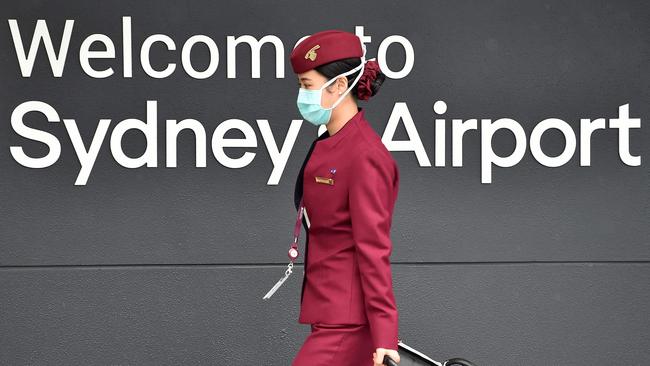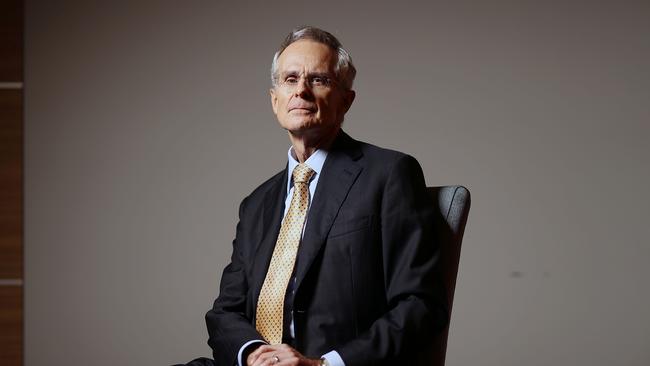Shots fired in dogfight over Qatar air ban
Rod Sims and Virgin join chorus of concern over the Albanese government’s decision to deny Qatar Airways more flights into the country.

Former competition tsar Rod Sims and Virgin Australia have joined a growing chorus of concern over the Albanese government’s decision to deny Qatar Airways more flights into the country, as criticism mounts in the absence of a clear explanation for the move.
The rejection last month of the Qatar Airways bid confounded the tourism and travel industry which had been crying out for more international airline capacity to put downward pressure on high airfares.
While Qantas supported the government’s position on Monday, Virgin Australia’s chief of sustainability and corporate affairs, Christian Bennett, told a Senate inquiry that the Qatar Airways decision was “deeply regrettable” and designed to favour the national carrier.
He said Virgin had chosen to partner with Qatar Airways because of the airline’s network and product, and the decision was a “source of deep disappointment”.
“I think there’s been a broad desire to see additional capacity come into Australia to try and help ameliorate the painfully high price of travel overseas … so when the prospect of an additional 800,000 to one million seats a year doesn’t crystallise, that obviously has a significant impact,” Mr Bennett said.
But Qantas International chief executive Cam Wallace said the current debate on traffic rights “completely distorted the broader dynamics in the market … and how competitive it was”.
“We understand people want cheaper fares but that will come in a sustainable way from the recovery that is already in full swing,” Mr Wallace said.
“52 international airlines have now returned to serve Australia and capacity has roughly doubled in the past year. In the past few weeks alone, China Southern and Singapore Airlines have announced more new flights to Australia than Qatar was seeking.”

Transport Minister Catherine King has said additional flights by Qatar Airways would not be in the national interest. Her office refused to elaborate any further, leaving it to Qantas to defend the move, adding to the perception the airline and Canberra were too close for comfort.
Mr Sims, a former chair of the Australian Competition & Consumer Commission, said the government needed to clarify the key reasons for its decision, arguing that “having Qatar flying more services would not only add more competition but … would be great for capacity to help get prices down”.
“When you are taking decisions which would seem to prevent both the extra capacity which we desperately need now and the extra competition, then clear explanations are needed,” he told The Australian.
“Because the case looks on the surface so very strong for having that capacity and competition – if you are deciding against that, you do need to be very clear as to why.”
Mr Bennett suggested that Qantas was protecting its market share on Middle East and Europe routes. Along with partner Emirates, Qantas “dominated the route” with a 43 per cent share of the market, Mr Bennett told the Senate committee.
“Had it been approved, Virgin Australia and its partners would have increased their share of the Middle East route from 23 per cent to between 25 and 27 per cent,” Mr Bennett said.
Tourism and Transport Forum Australia CEO Margy Osmond said there was a “desperate need for Australia to have as much increased capacity as possible”.
“The biggest, if you like, roadblock to the recovery in our international tourism market is a lack of seats to put bottoms on, not to put too fine a point on it,” she told the Senate inquiry.
Mr Wallace said Qantas invested millions of dollars a year marketing Australia as a destination, which was an “important difference between the airline and virtually every other carrier”.
“There are international routes we’d like to add, and places we’d like to fly more to, but can’t because we don’t have the traffic rights,” he said. “Fiji is just one example where further expansion by Qantas has been declined.”






To join the conversation, please log in. Don't have an account? Register
Join the conversation, you are commenting as Logout